Search
Search Results
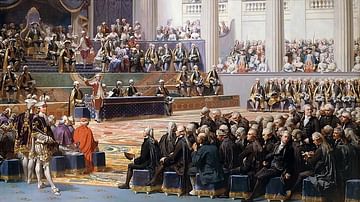
Definition
Estates-General of 1789
The Estates-General of 1789 was a meeting of the three estates of pre-revolutionary France: clergy, nobility, and commons. Summoned by King Louis XVI of France (r. 1774-1792) to deal with financial and societal crises, it ended with the Third...
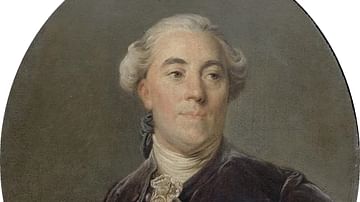
Definition
Jacques Necker
Jacques Necker (l. 1732-1804) was a Swiss banker and statesman who served as finance minister to King Louis XVI of France (r. 1774-1792). He served in the king's ministry three separate times, tasked with navigating France through its dire...
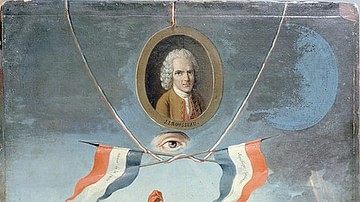
Definition
French Revolution
The French Revolution (1789-1799) was a period of major societal and political upheaval in France. It witnessed the collapse of the monarchy, the establishment of the First French Republic, and culminated in the rise of Napoleon Bonaparte...
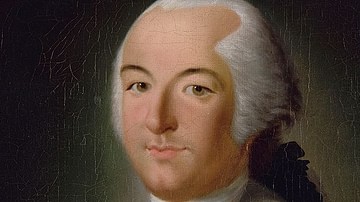
Definition
Louis Philippe II, Duke of Orléans
Louis Philippe II, Duke of Orléans (l. 1747-1793) was a French noble of royal blood. He was the head of the House of Orléans, a cadet branch of the royal Bourbon dynasty, and was a cousin of King Louis XVI of France (r. 1774-1792). Despite...
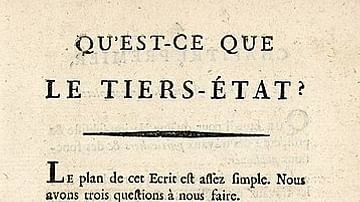
Article
Excerpts from What is the Third Estate
What is the Third Estate? was a pamphlet published by Abbè Emmanuel-Joseph Sieyès (1748-1836) in January 1789, months before the start of the French Revolution (1789-1799). The pamphlet concerns the place of the Third Estate (commoners) within...
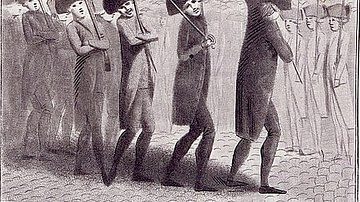
Image
The Heads of Launay and Flesselles
French soldiers or militia carry the severed heads of Bernard-René Jordan de Launay (1740-1789) and Jacques de Flesselles (1721-1789) on pikes following the Storming of the Bastille (14 July 1789). From an engraving, c. 1789, with a caption...
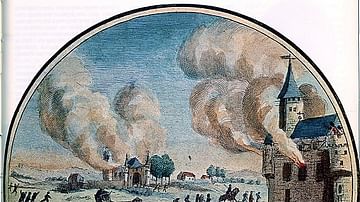
Definition
Great Fear
The Great Fear (French: la Grande Peur) was a wave of panic that swept the French countryside in late July and early August 1789. Fearful of plots by aristocrats to undermine the budding French Revolution (1789-1799), peasants and townspeople...
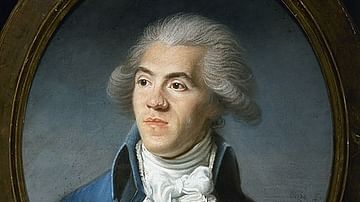
Definition
Antoine Barnave
Antoine Pierre Joseph Marie Barnave (1761-1793) was a French lawyer, politician, and one of the most influential orators of the early stage of the French Revolution (1789-1799). He is notable for being a champion of constitutional monarchy...
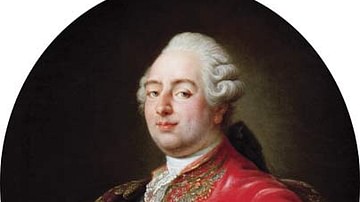
Definition
Louis XVI of France
Louis XVI (l. 1754-1793) was the last king of France (r. 1774-1792) before the monarchy was abolished during the French Revolution (1789-99). An indecisive king, his attempts to navigate France through the crises of the 1780s failed, leading...
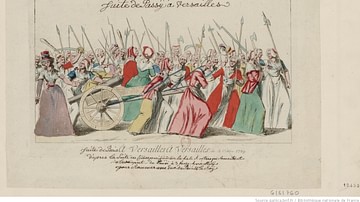
Image
Women's March on Versailles, 5 October 1789
Women's March on Versailles (5-6 October 1789). Outraged by high bread prices and the anti-revolutionary conduct of royal soldiers, a crowd of 7,000 women descended on the palace of Versailles. The king accompanied them back to Paris the...